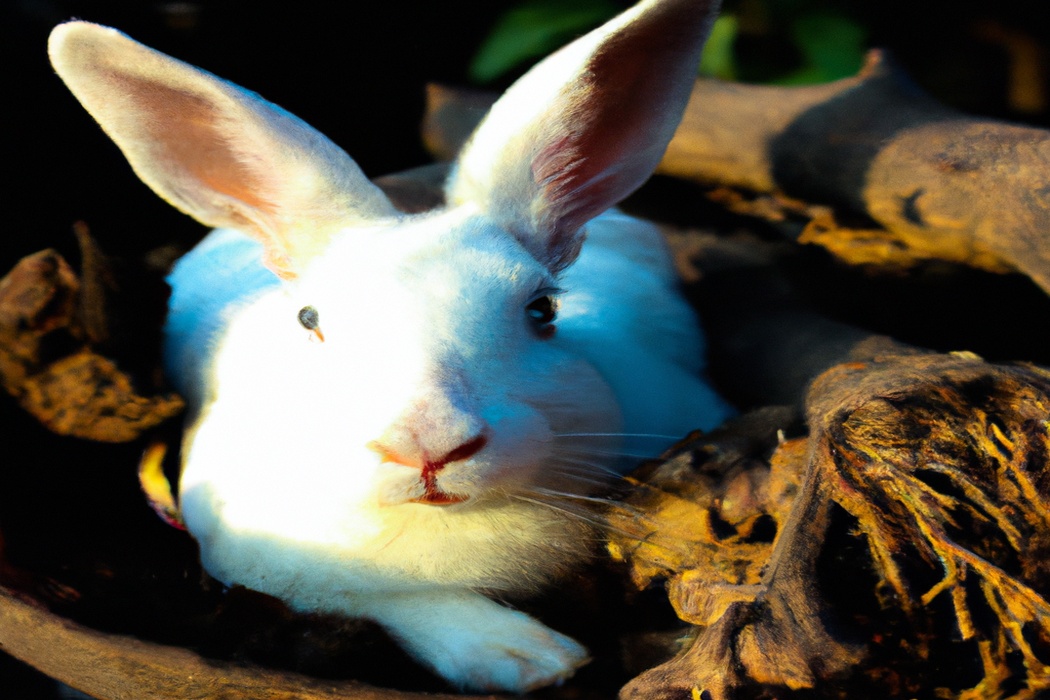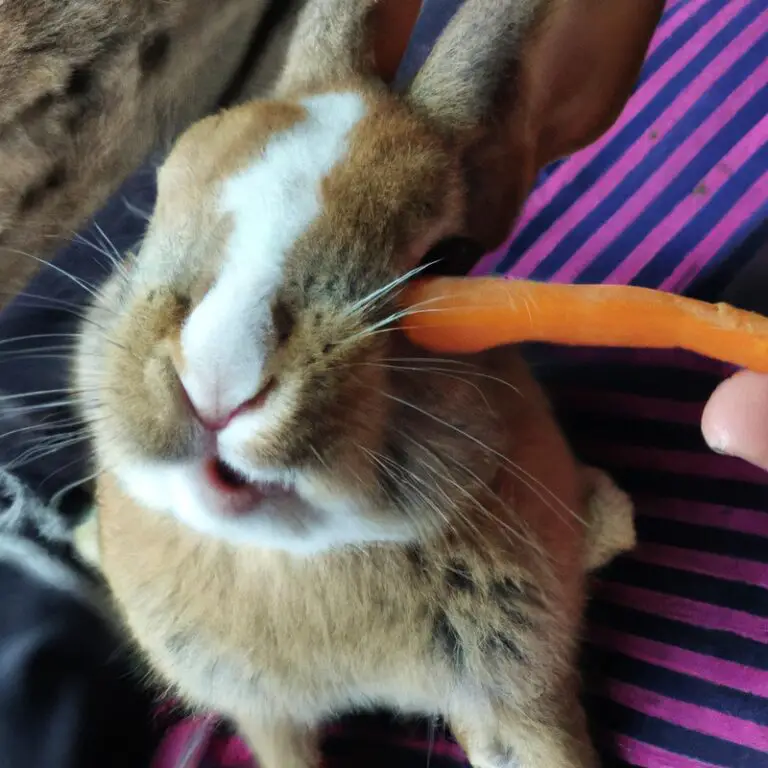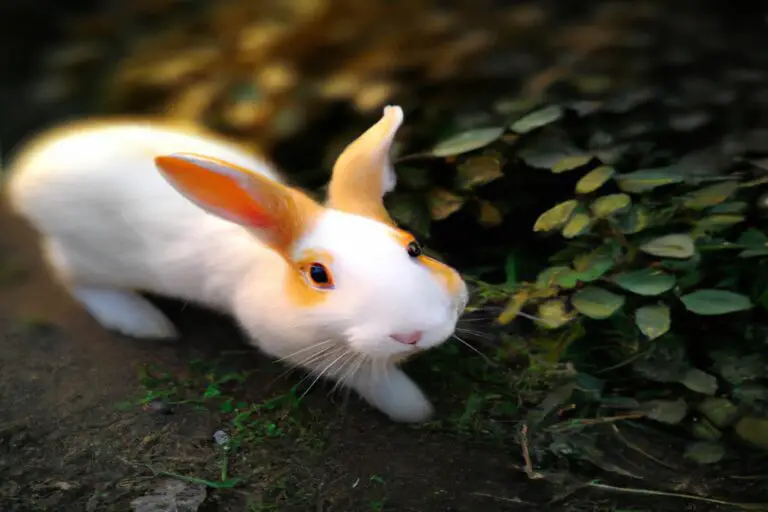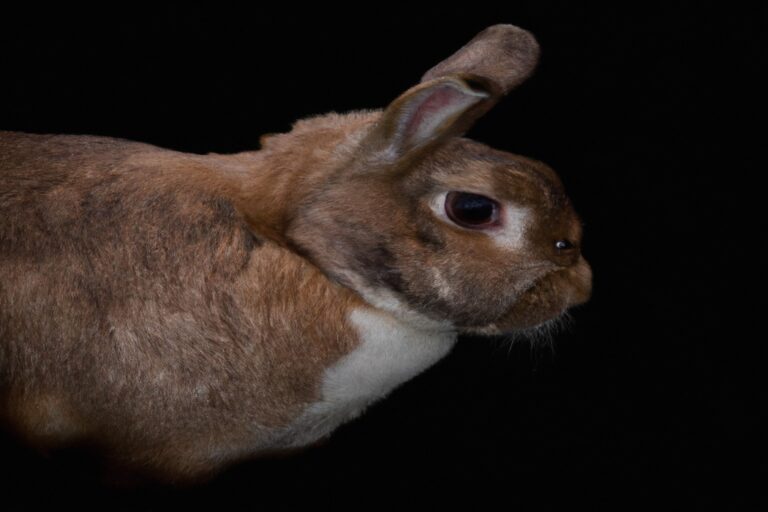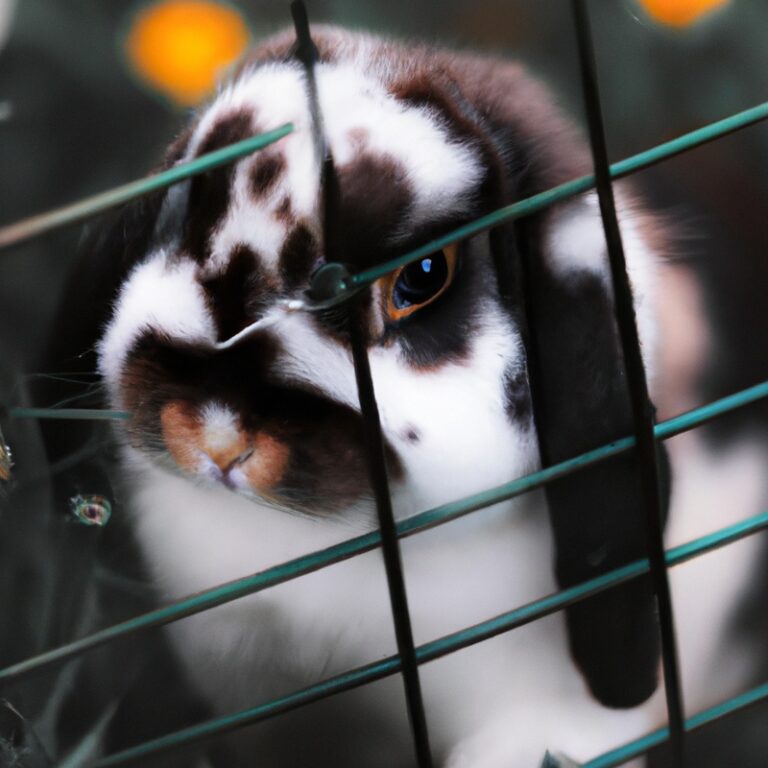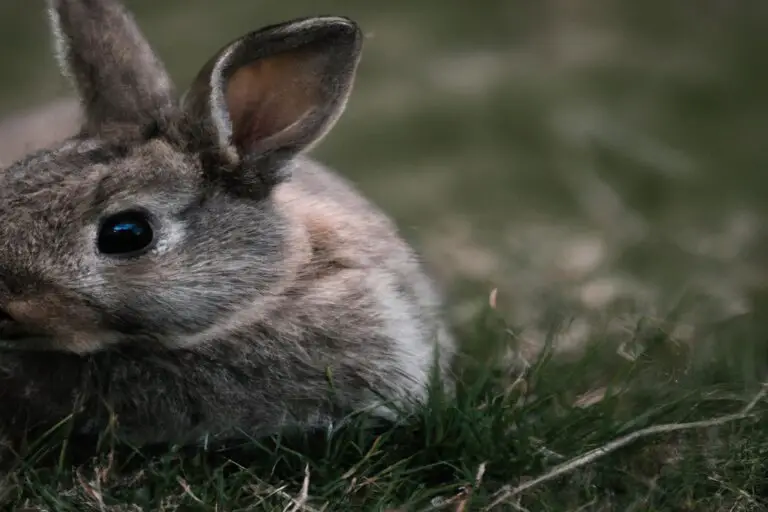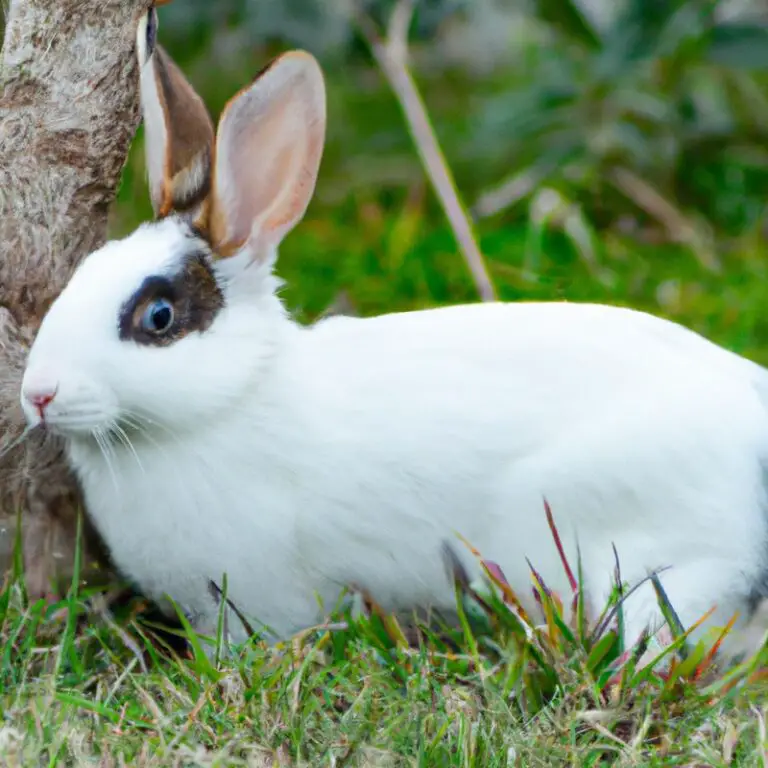Can Rabbits Chew Through Chicken Wire? Find out!
Key Takeaways:
- Rabbits have the ability to chew through chicken wire.
- Chicken wire alone may not be sufficient to keep rabbits contained.
- Consider reinforcing chicken wire with additional protective measures.
- Exploring alternative materials may be necessary to effectively rabbit-proof areas.
Hey there! So you’re thinking about getting a rabbit, huh? Well, let me tell you, these furry little creatures are expert chewers.
When it comes to chicken wire, they can really put their teeth to the test.
But can they actually chew through it? That’s what we’re here to find out.
In this article, we’ll take a deep dive into the anatomy and chewing behavior of rabbits, explore the risks and concerns of using chicken wire as a rabbit enclosure, discuss alternative materials, and answer some frequently asked questions.
So, if you’re ready to dive into the world of rabbit chewing, let’s hop right in!
| Chicken Wire | |
|---|---|
| Rabbit | Yes |
| Can Chew Through | Yes |
| Difficulty | Easy |
| Prevention Methods | – Use hardware cloth instead of chicken wire – Double up the chicken wire – Bury the wire at least 6 inches in the ground |
Rabbit teeth anatomy and chewing behavior
Rabbit teeth are designed for constant growth and chewing, making them sharp and strong.
Rabbits have natural behaviors that involve chewing to maintain their dental health and satisfy their need to gnaw.
Structure and growth of rabbit teeth
Rabbit teeth are unique in their structure and growth.
They have open-rooted teeth, which means they grow continuously throughout their lives.
This is necessary because rabbits need strong teeth to chew their tough, fibrous diet.
The front teeth, called incisors, are sharp and used for cutting.
The back teeth, known as molars, are broad and used for grinding.
Their teeth are also layered with enamel, which makes them strong and resistant to wear.
Regular chewing helps in keeping their teeth properly aligned and prevents dental issues.

Importance of chewing for rabbits
Chewing is essential for rabbits because it helps keep their teeth healthy and worn down.
Rabbits have continuously growing teeth, so chewing helps prevent dental problems like overgrowth and painful spurs.
It also aids in digestion by breaking down food and promoting gut movement.
Chewing provides mental stimulation and helps rabbits relieve stress and boredom.
To support their chewing needs, offer rabbits plenty of safe materials to chew on, such as hay, untreated wood, and rabbit-safe toys.
Natural chewing behaviors of rabbits
Rabbits have natural chewing behaviors that are important for their overall well-being. These furry creatures have continuously growing teeth, so chewing is necessary to keep their teeth at the right length.
Rabbits will chew on various objects, such as hay, grass, twigs, and even furniture if given the opportunity.
Chewing not only helps maintain their dental health but also provides mental stimulation and helps prevent boredom. Providing appropriate chew toys and a consistent supply of hay can help satisfy their natural chewing instincts.
Risks and concerns with chicken wire as rabbit enclosure
Possible damage caused by rabbits chewing on chicken wire, health implications for rabbits chewing on chicken wire, and security issues with chicken wire as an enclosure material are significant risks and concerns.
Possible damage caused by rabbits chewing on chicken wire
When rabbits chew on chicken wire, they can cause various types of damage.
Firstly, their chewing can weaken the wire, leading to holes and gaps in the enclosure.
This compromises the security of the enclosure and puts the rabbit at risk of escape or predator attacks.
Secondly, if they consume small pieces of the wire, it can lead to digestive issues or even blockages in their intestinal tract.
Lastly, their chewing can also damage their teeth, which can affect their ability to eat and lead to potential health problems.
It’s important to regularly inspect and replace damaged wire to ensure the safety of your rabbits.
Health implications for rabbits chewing on chicken wire
Rabbits chewing on chicken wire can lead to serious health implications. The sharp edges of the wire can cause cuts and injuries in the rabbit’s mouth, leading to pain and potential infections.
Ingesting the wire can also cause blockages in their digestive system, which may require surgery to remove.
Additionally, the chemicals used to treat the wire can be harmful if ingested. It’s important to provide rabbits with safe and appropriate materials to chew on, such as untreated wooden toys or specially designed rabbit-safe chew toys.
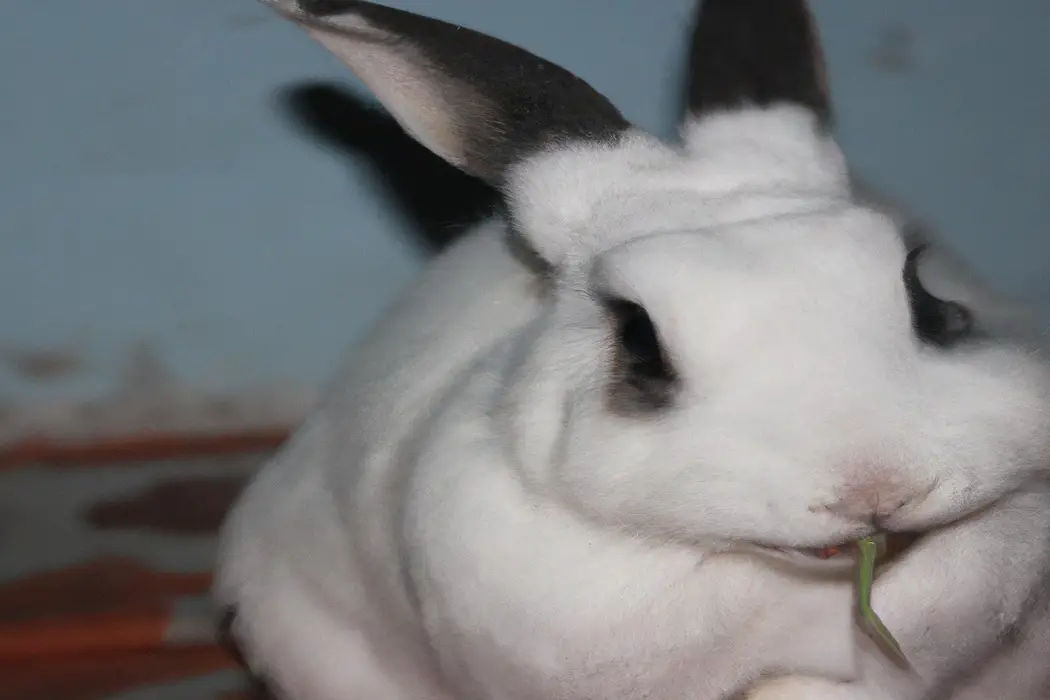
Security issues with chicken wire as an enclosure material
Chicken wire may not be the best choice for rabbit enclosures due to security issues.
Rabbits are known to chew through the wire easily, compromising the enclosure’s integrity.
Additionally, chicken wire may not be strong enough to withstand predators, such as foxes or raccoons, who could break in and harm the rabbits.
It is important to consider safer, more secure options, such as hardware cloth or welded wire, to ensure the safety and protection of your rabbits.
Alternative materials for rabbit enclosure
There are several safe and durable options you can consider for your rabbit enclosure, including hardware cloth, welded wire mesh, and PVC panels.
Safe and durable options for rabbit enclosures
There are several safe and durable options for rabbit enclosures. Here are a few options to consider:
- Welded wire mesh: This type of mesh is sturdy and resistant to chewing. It provides a secure enclosure while still allowing ventilation.
- Hardware cloth: Similar to welded wire mesh, hardware cloth is made of sturdy material that rabbits can’t chew through. It’s a great option for rabbit enclosures.
- PVC-coated wire: PVC coating adds an extra layer of protection to the wire, making it more durable and resistant to chewing.
- Chain-link fencing: While not as chew-proof as the previous options, chain-link fencing can still be effective in keeping rabbits contained. To make it more secure, you can add a layer of hardware cloth to the lower portion of the fence.
- Solid materials: Alternatively, you can also use solid materials like wood or plastic to build an enclosure. Just make sure there are no gaps or weak spots where rabbits can escape.
Remember, the most important thing is to regularly inspect your rabbit enclosure for any signs of wear and tear. It’s always better to be safe than sorry when it comes to your furry friends’ safety.
Benefits of using alternative materials
Using alternative materials for your rabbit enclosure can have several benefits. Here are some advantages:
- Enhanced durability: Alternative materials like PVC, metal mesh, or vinyl-coated wire can offer increased strength and durability compared to traditional materials like chicken wire.
- Improved safety: Some alternative materials provide better protection against predators, ensuring the safety of your rabbits.
- Weather resistance: Certain alternative materials are designed to withstand harsh weather conditions, such as rain, wind, and extreme temperatures, providing better comfort and protection for your rabbits.
- Easy maintenance: Alternative materials can be easier to clean and maintain, saving you time and effort in the long run.
- Aesthetic appeal: Using different materials can give your rabbit enclosure a unique and visually appealing look, enhancing the overall appearance of your backyard or living space.
- Customization options: Alternative materials often come in different sizes, colors, and styles, allowing you to customize your rabbit enclosure according to your preferences and needs.
Overall, considering alternative materials for your rabbit enclosure can offer improved durability, safety, easy maintenance, aesthetic appeal, and customization options. It’s worth exploring these options to provide the best living environment for your furry friends.
Cost considerations for alternative materials
When choosing alternative materials for a rabbit enclosure, it’s important to consider the cost. Some cost considerations to keep in mind are:
- Material cost: Calculate the price of the alternative materials you are considering. Compare the costs of different options to find the most budget-friendly one.
- Long-term durability: While some materials may be cheaper upfront, they may not withstand the test of time. Consider the durability and lifespan of the materials to avoid having to replace them frequently, which can add to the overall cost in the long run.
- Maintenance expenses: Think about the maintenance requirements of different materials. Some may require regular upkeep or repairs, which can increase the overall cost over time. Opt for materials that are low-maintenance to minimize additional expenses.
- Accessibility: Consider the availability of the alternative materials in your area. If they are hard to find or need to be shipped from far away, it may increase the overall cost due to shipping fees or limited availability.
Remember to weigh these cost considerations against other factors like safety, functionality, and suitability for rabbits to find the best alternative material for your rabbit enclosure.
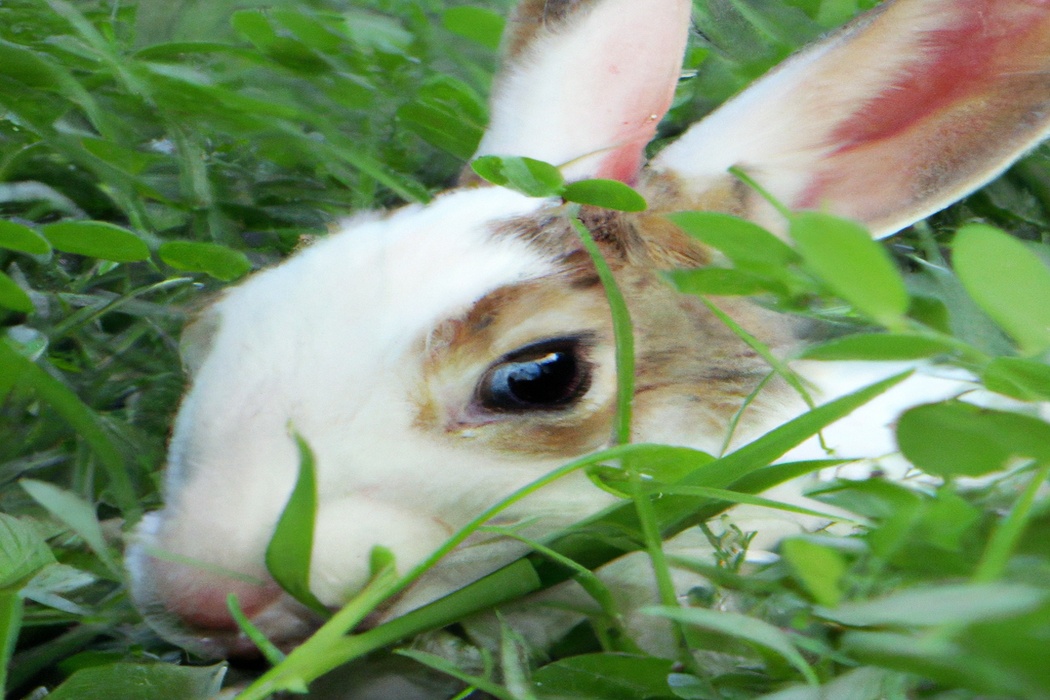
Frequently Asked Questions
Can rabbits escape from chicken wire enclosures?
Yes, rabbits can escape from chicken wire enclosures. Chicken wire is not a reliable material for keeping rabbits securely contained.
Rabbits have strong teeth and can chew through the wire, making it easy for them to escape.
It’s best to use a stronger and more durable fencing material specifically designed for rabbits, such as hardware cloth or rabbit wire. These materials are much harder for rabbits to chew through and provide better security for your furry friends.
Are there any precautions to prevent rabbits from chewing on chicken wire?
To prevent rabbits from chewing on chicken wire, there are a few precautions you can take:
- Use stronger wire: Opt for hardware cloth or woven wire mesh with smaller gaps instead of chicken wire, which is easier for rabbits to chew through.
- Bury the wire: Ensure the wire is buried at least 6 inches into the ground to prevent rabbits from burrowing underneath.
- Add a deterrent: Apply a commercial pet deterrent spray or make a homemade solution of vinegar and water to make the wire less appealing to rabbits.
- Create a barrier: Install a secondary fence or barrier about a foot away from the chicken wire to provide an extra layer of protection.
By taking these precautions, you can discourage rabbits from chewing on the chicken wire and help protect your garden or other areas from unwanted damage.
Can chicken wire be used for certain areas of the rabbit enclosure?
Yes, chicken wire can be used for certain areas of the rabbit enclosure. It is a popular choice for creating barriers and partitions within the enclosure, especially if you want to separate different sections or prevent rabbits from accessing specific areas.
You can use chicken wire to build cages, fences, or covers for vegetables and plants that you want to protect from rabbits.
However, it’s important to make sure that the holes in the chicken wire are small enough to prevent rabbits from squeezing through. Additionally, chicken wire may not be the best option for the entire enclosure, as rabbits might be able to chew through it over time.
So, it’s a good idea to combine chicken wire with stronger materials, such as hardware cloth or welded wire, for the parts that require more security.
Final Verdict
While rabbits have a natural tendency to chew, chicken wire is not the most suitable material for their enclosure.
Rabbits can easily chew through the wire, causing potential damage to their teeth and leading to health issues.
It is recommended to use alternative materials such as hardware cloth or welded wire mesh, which are safer and more durable options.
Although these alternatives may be slightly more expensive, they provide a secure and long-lasting solution for your rabbit’s enclosure.
Ultimately, prioritizing your rabbit’s well-being by choosing the right materials will ensure a happy and healthy environment for them.

